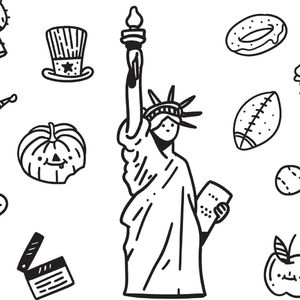Does the MBTI reflect your true self?
Merve Emre | TED-Ed • December 2020
In 1942, a mother-daughter duo Katherine Cook Briggs and Isabel Briggs Myers developed a questionnaire that classified people's personalities into 16 types. Called the Myers-Briggs Type Indicator, or MBTI, it would go on to become one of the world's most widely-used personality tests.
1942年,一对母女凯瑟琳·库克·布里格斯和伊莎贝尔·布里格斯·迈尔斯设计了一张问卷,把人的性格分为十六种。这就是迈尔斯-布里格斯类型指标,简称MBTI,后来发展成为全世界使用范围最广的性格测试之一。
Today, personality testing is a multi-billion dollar industry used by individuals, schools, and companies. But none of these tests, including the MBTI, the Big Five, the DiSC assessment, the Process Communication Model, and the Enneagram, actually reveal truths about personality. In fact, it's up for debate whether personality is a stable, measurable feature of an individual at all.
如今,性格测试已发展成为价值数十亿美元的行业,个人、学校和企业都在使用。但这些测试,包括MBTI、大五类人格测试、DiSC测评、过程沟通模型,以及九型人格测试,都不能真正揭示性格真相。其实,性格是否是一个人身上稳定且可测量的特征仍尚存争议。
Part of the problem is the way the tests are constructed. Each is based on a different set of metrics to define personality: the Myers-Briggs, for instance, focuses on features like introversion and extroversion to classify people into personality "types," while the Big Five scores participants on five different traits. Most are self-reported, meaning the results are based on questions participants answer about themselves. So it's easy to lie, but even with the best intentions, objective self-evaluation is tricky.
一部分问题在于性格测试的构成方式。每种测试都是基于一套不同的性格定义指标:例如,迈尔斯-布里格斯测试,主要按照内向与外向将人分为不同的“性格类型”,而大五类人格测试则按照五种不同的特质评估受试者。问题大多由受试者自陈,也即是说测试结果是基于受试者自己对问题的回答,因此非常容易作假。但即使极为认真,客观的自我评估也很难。
Take this question from the Big Five: How would you rate the accuracy of the statement "I am always prepared"?
以这个选自大五类的问题为例:你会怎么评定“我总是做好了准备”这句话的准确度呢?
There's a clear favorable answer here, which makes it difficult to be objective. People subconsciously aim to please: when asked to agree or disagree, we show a bias toward answering however we believe the person or institution asking the question wants us to answer. Here's another question— what do you value more, justice or fairness? What about harmony or forgiveness?
面对一个明显讨人喜欢的答案,保持客观会变得很困难。人们潜意识地希望取悦他人:当被问到同意与否时,我们会倾向于回答我们认为问出这个问题的个人或组织想让我们回答的那个答案。再看一个问题—你更看重什么,正义还是公平?和睦还是宽恕?
You may well value both sides of each pair, but the MBTI would force you to choose one. And while it's tempting to assume the results of that forced choice must somehow reveal a true preference, they don't: When faced with the same forced choice question multiple times, the same person will sometimes change their answer.
你可能同样重视每组中的两方,但是MBTI测试要求你必须选择一个。同时它假定了勉强选出的答案所得出的结果一定可以在某种程度上揭示真实的偏好,但其实并不能。当同样的勉强选择多次出现后,同一受试人有时会改变答案。
Given these design flaws, it's no surprise that test results can be inconsistent. One study found that nearly half of people who take the Myers-Briggs a second time only five weeks after the first get assigned a different type. And other studies on the Myers-Briggs have found that people with very similar scores end up being placed in different categories, suggesting that the strict divisions between personality types don't reflect real-life nuances.
Complicating matters further, the definitions of personality traits are constantly shifting. The Swiss psychiatrist Carl Jung, who popularized the terms introvert and extrovert, defined an introvert as someone who sticks to their principles regardless of situation, and an extrovert as someone who molds their self according to circumstance. Introversion later came to mean shyness, while an extrovert was someone outgoing. Today, an introvert is someone who finds alone time restorative, an extrovert draws energy from social interaction, and an ambivert falls somewhere between these two extremes.
The notion of an innate, unchanging personality forms the basis of all these tests. But research increasingly suggests that personality shifts during key periods— like our school years, or when we start working. Though certain features of a person's behavior may remain relatively stable over time, others are malleable, moulded by our upbringing, life experiences, and age.
All of this matters more or less depending on how a personality test is used. Though anyone using them should take the results with a grain of salt, there isn't much harm in individual use— and users may even learn some new terms and concepts in the process. But the use of personality tests extends far beyond self discovery. Schools use them to advise students what to study and what jobs to pursue. Companies use them decide who to hire and for what positions. Yet the results don't predict how a person will perform in a specific role. So by using personality tests this way, institutions can deprive people of opportunities they'd excel at, or discourage them from considering certain paths.
🌟 字数限制,完整翻译,以及视频版和pdf见公众号【琐简】,回复"1" 可加入【打卡交流群】


TED-Ed|MBTI性格测试能反映你的真实自我吗?
4分钟 · 158·
158· 0
0
 158
158 0
0
